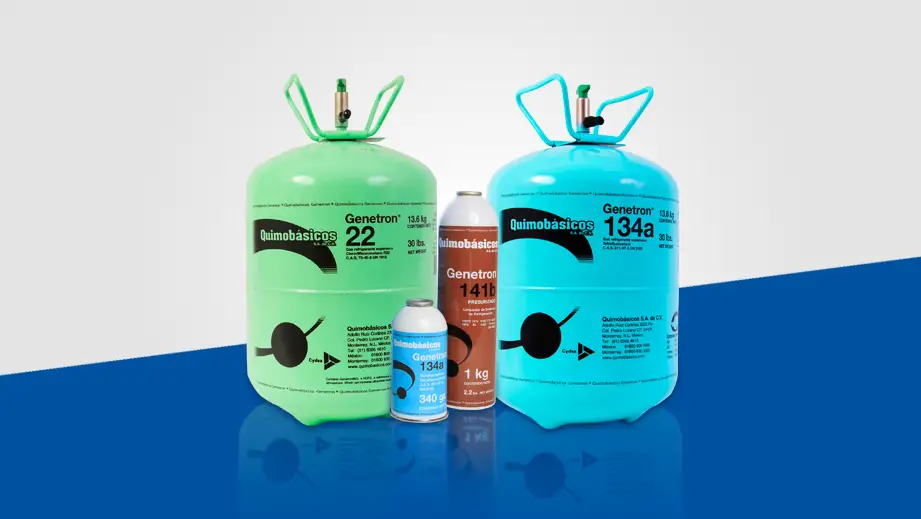Overcharged refrigerant symptoms aren’t as obvious as you might think. Yet, they can take a hefty toll on the efficiency and lifespan of your HVAC system. But don’t fret! We’re here to help you spot these symptoms and ensure your system runs smoothly, stays healthy, and keeps your space comfy.

Table of Contents
Brief Overview of Overcharged Refrigerant Symptoms
Imagine putting too much air in your bike tire. You can see the bulging, right? Well, when your HVAC system is overcharged with refrigerant, it’s somewhat similar, except it’s not as visible.
Overcharging refers to adding excess refrigerant in your system beyond its capacity. This doesn’t boost its performance, contrary to what some may think. Instead, it can cause serious damage and decrease efficiency.
Primary Overcharged Refrigerant Symptoms
It’s your HVAC system’s cry for help when it’s overcharged. Symptoms might include escalated pressure within the system, increased energy bills, a drop in cooling efficiency, frozen evaporator coils, or even strange noises coming from your system. Think of these signs as your HVAC system saying, “Help, I’m overloaded!”
Elevated System Pressure
Ever felt bloated after a big meal? That’s what happens to your HVAC when it’s overcharged – it experiences high system pressure. It struggles to function properly under the strain and can even lead to damaging other components.
Increased Energy Bills
When the system is overworked, it consumes more energy. And this can make your bills skyrocket, like a hot air balloon on a breezy day. Nobody likes an unexpected spike in their monthly expenses, right?
Decreased Cooling Efficiency
An overcharged system has a harder time absorbing and releasing heat, which results in less cooling. It’s like trying to run in a crowded hallway – you simply can’t move as efficiently.
Frozen Evaporator Coils
Overcharging can lead to freezing of the evaporator coils, turning your HVAC into a mini ice kingdom. While it might sound cool (pun intended), it’s actually a sign of serious trouble.
Unusual Noises from the HVAC System
Your HVAC system shouldn’t sound like a rock concert. If it’s making unusual noises, it might be due to overcharging. It’s its way of telling you, “Hey, something’s not right here!”
Check out these other related articles…
R718 Refrigerant: The Comprehensive Guide
R744 Refrigerant: A Comprehensive Guide
R717 Refrigerant: Your Comprehensive Guide
Ammonia Refrigerant: A Detailed Guide
Water Refrigerant: A Comprehensive Guide
Overcharged Refrigerant Symptoms Specific to Different Refrigerants
Different refrigerants might show slightly varied symptoms when overcharged. For instance, the common types, 410a and R134a, each exhibit unique signs of overcharging.
410a Overcharge Symptoms
When your 410a refrigerant is overcharged, it might start to behave like a car with an overheated engine. High discharge temperatures and frequent tripping of the circuit breaker are typical distress signals.
High Discharge Temperature
If your 410a system seems to be running a fever with high discharge temperatures, it might be overcharged. It’s like your system’s saying, “I’m burning up in here!”
Tripping Circuit Breaker
Excess 410a refrigerant can make your system work harder, causing the circuit breaker to trip frequently. It’s like the system is continually pulling the emergency brake!
R134a Overcharge Symptoms
Overcharging an R134a refrigerant may seem like serving a lukewarm drink on a hot day. The most evident signs are inadequate cooling and a compressor that overheats – similar to how you would feel after a long run in the midday sun.
Inadequate Cooling
If your space isn’t as cool as it used to be, it might be due to overcharging the R134a refrigerant. It’s like running a fan on a hot day – you’re expending energy but not getting much relief.
Compressor Overheating
Just like you’d overheat if you ran a marathon without training, an overcharged R134a system could result in an overheating compressor. And trust us, it’s not something you want to deal with!
What to Do If Your HVAC System Is Overcharged
If you suspect your system is overcharged, it’s best to call in a professional. They have the right tools and know-how to fix the issue without causing further harm. Remember, trying to play DIY with your HVAC is like poking a sleeping bear – it’s not a good idea.